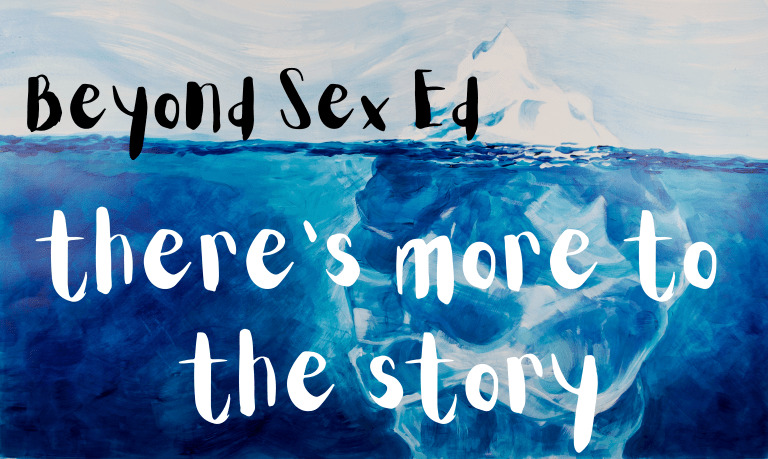Each quarter, Brianna Booth, director of positive sexuality, teaches a class where students talk about sex, sexuality, intimacy and relationships by telling their own stories. Stories reveal the reality of a hidden culture in which students care, a lot. Students contend with unexpressed feelings, silenced desires, big love, big pain and searing heartache. This series is dedicated to sharing that reality — together, we’ll build a more intimate world. Read the introduction to the series here.
“We rarely get to hear stories as they are happening.” I distinctly remember my instructor Brianna Booth speaking these words in StoryCraft: Sexuality, Intimacy, & Relationships. She reminded me that our stories are often works in progress. They are not finished. So I want to share with you my story in progress.
I have come to think of relationships as binary star systems. A binary star system is a cluster of two stars orbiting each other. The stars evolve together, though not identically. They collapse when they lose part of their mass. Falling in love gives a sensation of collapsing, and in that collision with another person, losing part of yourself. But I want to stay in orbit: a careful balance between the gravity that holds me together and the gravity that holds us together.
Less than a year ago, I committed to a long-distance relationship. My free time became our free time. I processed tough moments more with him than with myself, so it became a reflex to lean on him. When I was down, he wanted to make me happy, but sometimes he could not do anything to take away my pain, fear or disappointment. When my relationship began to pull me, I stretched myself for it. Time started to fly by too quickly. Four-hour long conversations led to all-nighters because afterward I had to catch up on work. I started to not feel good about myself. A couple times when it became exhausting, we took week-long breaks as a breather.
I realize now that when I committed to him, I had not first committed to myself. I promised I would be there for him, but I never promised I would be there for me. In my head, I preached self-love, but I was not truly acting on it. I began to miss having things of my own: my time, my sleep, my work ethic, myself. If we needed a hiatus from talking to get back into the rhythm of ourselves, it meant that when we were together we would lose a part of ourselves as individuals again. It meant that we were losing our own gravity. Initially, I was frustrated with him, but really I was frustrated with myself. I was not being my own cheerleader. I was failing to give to myself, and only I can truly take away my own sorrow and joy. He could say, “You are smart and beautiful and special,” but I want to believe those things about myself, for myself. I need to feel good about myself to feel good about us together.
To bring my best self to my relationships, I have to commit to myself. I want to hold my own gravity, and I want my own gravity to hold me. I want to make myself happy. I want to process my day with myself first and be able to hold my own hand. My primary relationship will always be the one I have with myself. Breaking the habit of prioritizing others is challenging, but I am learning to honor my own body and mind. Sometimes, it means being honest in not wanting to share; some thoughts belong to just me. Other times, it means going on a run or dancing to Reggaeton to recharge instead of being on a call.
I am reminded of Michelle Obama’s perspective on prioritizing herself, even in her relationship with Barack Obama: “If I’m going to show up equal in this partnership, I have to be able to make myself happy and so I had to stop focusing on what he wasn’t doing and start thinking about how to carve out the life that I wanted for myself, with or without Barack. The more I succeeded in defining myself for myself, the better I was in my partnership.”
How do I define myself? I am a daughter and a sister and a friend, but with or without others, who do I want to be? I am realizing that I can push myself more outside of my comfort zone. I want to be strong and curious and kind. I want to be an activist and an advocate. Sometimes, I want magic to lift the weight of the world, but then JK Rowling reminds me that “we carry all the power we need inside ourselves already.” That power is our own gravity.
I am still figuring out how to stay in orbit. Sometimes I feel myself collapsing into the people who I orbit with, but I am learning to hold my own gravity. It is the only control I have. To be happy both in and outside of my relationships, it is the only control I need.
Contact Evani Radiya-Dixit at evanir ‘at’ stanford.edu.
This is the second in a multi-part series. Read the introduction here.
The Daily is committed to publishing a diversity of op-eds and letters to the editor. We’d love to hear your thoughts. Email letters to the editor to eic ‘at’ stanforddaily.com and op-ed submissions to opinions ‘at’ stanforddaily.com.
